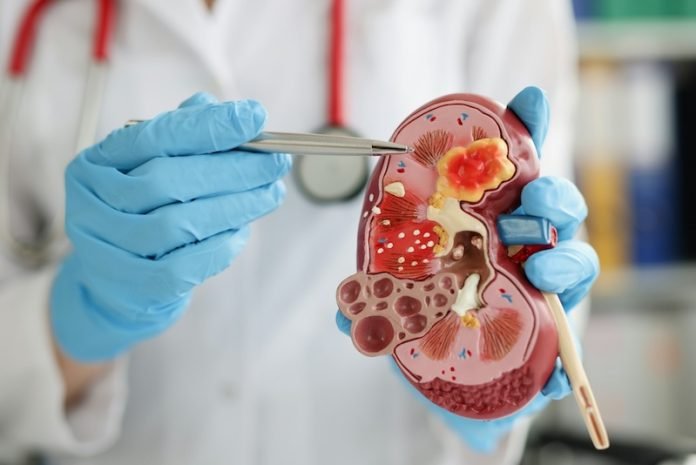
Kidney stones are hard mineral deposits that form in the kidneys and can cause severe pain as they move through the urinary tract.
For anyone who has experienced or is experiencing this, one of the first questions is often: How long will this take?
This review delves into how long kidney stones typically take to pass, what factors influence this duration, and what individuals can expect during this often uncomfortable process.
Understanding Kidney Stones
Kidney stones develop when minerals and salts in the urine crystallize and stick together.
They can vary significantly in size, ranging from as small as a grain of sand to as large as a pea or even larger.
The size and location of the stone play critical roles in how they affect the body and how easily they pass out of the system.
Passing Kidney Stones: Time Frame
The time it takes for kidney stones to pass can vary widely. Generally, smaller stones (less than 5mm in size) have a high chance of passing through the urinary tract within three to four weeks. In contrast, larger stones (5mm to 10mm) might take longer, and often require medical intervention.
Research shows that stones smaller than 4mm in diameter have about an 80% chance of passing naturally within a month, while the likelihood decreases for larger stones.
Stones larger than 6mm often require medical treatment, such as lithotripsy (a procedure that breaks the stone into smaller pieces using sound waves) or surgical removal.
What Influences the Passing Time?
Several factors influence how long it takes a kidney stone to pass:
- Size of the Stone: Smaller stones are more likely to pass on their own without causing too many symptoms.
- Shape of the Stone: Stones with smoother surfaces tend to pass more easily than those with jagged edges.
- Location in the Urinary Tract: Stones located closer to the bladder are generally passed more quickly than those lodged higher up in the urinary system.
- Urinary pH: Urine pH can affect stone movement; certain dietary choices can alter pH and influence stone passage.
What to Expect While Passing a Kidney Stone
Passing kidney stones can be quite painful, especially when the stone moves into the ureter, the tube connecting the kidney and bladder. Here’s what one might experience:
- Pain: Often described as sharp and cramping, pain can occur in the back, side, lower abdomen, or groin.
- Urinary Symptoms: Frequent urination, painful urination, or an urgent need to urinate can occur. Urine may appear cloudy or have a foul odor.
- Blood in Urine: It’s common to see pink, red, or brown blood in the urine.
- Nausea and Vomiting: These symptoms can occur as a response to intense pain.
Management and Treatment
The approach to managing kidney stones depends largely on the size, type, and cause of the stone. Treatment options include:
- Pain Relief: Over-the-counter pain relievers such as ibuprofen can help manage pain. For severe pain, stronger prescription painkillers may be needed.
- Fluid Intake: Drinking plenty of water helps to flush the urinary system and aid the passage of the stone.
- Medical Therapy: Your doctor might prescribe medications to relax the ureter to help the stone pass more easily.
- Dietary Changes: Depending on the type of stone, modifying the diet can prevent future stones.
While kidney stones can be painful and sometimes slow to pass, understanding the factors that affect their passage and what to expect can help individuals manage the condition more effectively.
Consulting with a healthcare provider for pain management strategies and possible treatments tailored to the stone’s characteristics is essential. With the right management, most stones can be passed or treated successfully, leading to a full recovery.
If you care about kidney health, please read studies about how to protect your kidneys from diabetes, and drinking coffee could help reduce risk of kidney injury.
For more information about kidney health, please see recent studies about foods that may prevent recurrence of kidney stones, and eating nuts linked to lower risk of chronic kidney disease and death.
Copyright © 2024 Knowridge Science Report. All rights reserved.



